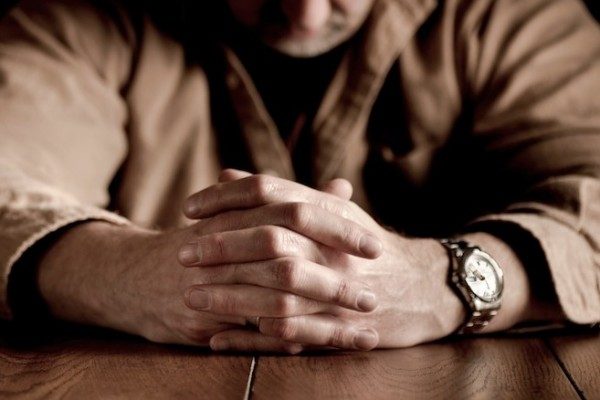My wife is aware of my homosexual experience
I have lived a Church life for over fifteen years, but I still cannot say I have conquered my passion. Life is a journey. Sometimes we fall below the mark the Lord calls us to, sometimes we rise above it. I actually dislike the word “battle,” I would rather refer to this journey as “transfiguration.”
My wife knows of my homosexual experience. I believe that people who plan on getting married need to discuss such things openly. An announcement like that ought not to be something that could undermine the trust already established in a marriage. Obviously, this is not something I brought up on a first date, nor did I wait until a week remained before the wedding. I waited until a relationship of trust was built between us. Not all wives are capable of bearing it.
My wife understood me. I believe spouses need to help each other in overcoming all passions. She knows I experience this kind of temptations. However, there is no need to tell her about it while savouring details! I feel it is important for my wife to be aware of everything that goes on in all areas of my life, problems at work as well as inward contradictions.
We fall prey to sins and passions when we do not get along with those closest to us. That is exactly when people suffering from gluttony overeat and those with a weakness for alcohol drink. One of the means of fighting passions is to avoid those dissentions.
A priest told me, “Cheer up! We’re not giving up the fight yet!”
Some people think it is better not to bring things like that to confession. I’ve been to confession to many priests, and there were times when I had to talk about this particular passion. All of them reacted appropriately – some prayed while listening (which was very comforting), while others tried to help me make sense of it all. Then again, one time I heard, “You just need to get married!” What could I say in reply? The only thing I could do was to shrug it off and think to myself, “I’m glad it’s that easy for you, Father!”
Marriage is not a cure-all or a “miracle cure” from homosexuality. It is, however, a path by which a person can attain holiness, same as by living alone or in a monastic community. At times celibacy is by no means easier than marriage. I know sad examples of people who got married, but, being unable to overcome the attraction to their own sex, began to lead a double life. Those are wretched people, wretched families.
Many say that people attracted to their own sex can never love as passionately as regular people. However, the reality is completely different: a relationship starts off with friendship, intimacy comes later. The importance of romantic love is highly exaggerated in the modern world. I know many straight men who, when they were getting married a few years ago, were attracted to their other half, but now their marriages are falling apart.
Love is bigger than romance. If nothing sustains love, any marriage will be reduced to sharing the same premises. A marriage should be a leap of faith, not a solution to the problem of “So, people keep asking me when I will get married, now they’ll leave me alone.”
I came to the Church because I understood that I could not live without God. The Bible clearly states that the Church and homosexuality are incompatible, “Do not be deceived. Neither fornicators, nor idolaters, nor adulterers, nor homosexuals, nor sodomites, nor thieves, nor covetous, nor drunkards, nor revilers, nor extortioners will inherit the Kingdom of God” (1 Corinthians 6:9-10).
These days, they often say that this was said about the lack of hospitality; that it referred to violence or prostitution; that “it all meant something completely different.” Self-justification is pleasant, but there is no point in rearranging the Bible to suit yourself. The Lord said what He said.
In my first confession the priest told me, “Cheer up! We’re not giving up the fight yet!” It was important for me to feel support in the attitude of my spiritual father. He is a family man himself, father to several children, grand-father to several grand-children, he has no personal experience of it, but the warmth and acceptance, with which he reached out to me, helped me to change.
If we look at modern psychotherapy, at Carl Rogers, we understand that what helps people the most, is unconditional acceptance. However, it does not mean accepting the sin itself. I did not come pleading, “take me as I am,” I doubt whether that could have helped me.
There is this initiative called “Preodolenie-X” (“Overcoming-X”); there is a lot of therapeutic information on that site. A person struggling with homosexuality does not necessarily live in a constant state of battle. Passions that exist in each and every one of us have a different power of expression.
There are heterosexuals who do not miss a chance to make a pass at a woman, who think they cannot live differently, while others are completely cool about that sort of thing. I think those psychotherapists are wise who say, “We do not cure homosexuality, but we do help you reach a point when you may stand honestly before God and yourself in that sense.”
No, I did not change overnight. The Lord had promised Abraham that he “would be a father of many of nations,” but he had to wait for it to happen for more than twenty-five years. I was convinced at first I would never be able to fall in love with a woman, nor desire a woman. I did not understand friendship at all, I was withdrawn, but I would often idealize young men and became romantically attached to them. However, forging real friendships changed much of my attitude towards men; it’s as though my perception of them became more realistic.
Moreover, I feared that, since I did not feel as attracted to women as to men, if I were to get married, I would ruin the life of my spouse. And now that I am a husband and a father, I am much happier than before. And this is exactly what faith is – when people make any kind of step, they are not one hundred percent sure everything will turn out right. It is incredibly hard and frightening to make that choice on your own, but when people are aware that “God is in it with them,” they experience everything differently.
We often hear, “You will burn in hell!”
The so-called militant “Orthodox” have repeatedly harassed homosexuals; like the time they started throwing snowballs at them in Ekaterinburg. And then how do you expect people to relate to the Church?! Some people think that if you say to someone, “you will burn in hell,” that person will believe in God. It doesn’t work that way. The only way you can help anyone is by witnessing with your own life what it means to “come to Christ.” When people see, “He has such a good marriage; you feel the warmth in their family,” or “he looks at me in a different way, with clear, kind eyes,” they may start to think, “maybe there is something there…”
Homosexuality did not become a subject of church discussions only in the twentieth century. Already in the questions and answers of Abba Dorotheus we see that some monks had a weakness for their brothers. You will find ascetic advice there. Likewise, the Apostle says, “And such were some of you. But you were washed, but you were sanctified, but you were justified in the name of the Lord Jesus and by the Spirit of our God” (1 Cor. 6:11).
The Church has always offered help to people who had uncovered this desire within themselves. It has never been done in the open, because it was a matter of confession. This is why, when they say to us these days that the Church cannot do anything, I say, it is wrong, because we simply do not and cannot know what are the statistics in question.
When I came to the Church and told a priest of my problems in this area, I did not feel as if I were an alien from space who nobody knew how to deal with. Later on I confessed holding grudges, being unforgiving, partiality, anger, impure thoughts. Often that is exactly what makes people feel uncertain about themselves and “take comfort in” homosexual thoughts and behaviour.
I read the appeal of the LGBT-community to the Council, but there was nothing like “I ask you to accept me as a sufferer and a penitent.” They speak of accepting “diverse sexuality.” Yet Christians can have but one sexuality – “male and female He created them” (Gen. 1:27). People are excommunicated when they live in sin and do not want to change.
It would be strange if people who are called to sanctity would be allowed to partake of the Holy Mysteries when they are consciously living in sin. When a person gives his life to God, “Lord, forgive me, I cannot overcome this, succour me,” when there are people capable of understanding nearby, there will be no grudges or feelings of rejection in the Church.
What does a person focus on? Does he focus on his own weakness, “oh, woe is me, have pity on poor, miserable me,” or does he say to himself, “yes, it is a weakness, but there is more to me than this, the Lord created me with more than this.” The more somebody is able to look beyond the confines of their “self” in general, the more they can have recourse to God, so much the easier does their struggle become.
You don’t need to go into detail when you confess to a priest the sin of sodomy; in fact, details are superfluous, because what confession is in itself, is bringing your heart to God. I like the analogy of a jar of cockroaches. Cockroaches are our thoughts, our impure desires. We open this jar in confession; cockroaches disappear; the jar is clean. Everybody has similar experiences in confession – inner struggle is followed by peace. In a sense, you can start your life all over.
It is difficult to break up a homosexual relationship – you become responsible, forever, for what you have tamed
People outside “the loop” cannot understand certain connotations of a homosexual relationship. It seems simple. Women may live together for many years; they need not even have physical relations. However, men and women enter differently into homosexual relationships.
It is very hard for men to remain faithful in such a relationship. A man keeps searching, “There is something wanting; I will probably find it somewhere else…” He finds someone, but eventually it turns out they both lack something. A new search begins. Women, meanwhile, often enter into co-dependent relationships founded on jealousy, control, manipulation.
However, if we begin to think as Christians, not as psychotherapists, there is no question of “what is wrong with these relationships?” We have an image of a family that the Lord gave us. It is good to try and live up to this image.
Clearly it is hard to break up a homosexual relationship, because “you become responsible, forever, for what you have tamed” (Antoine de Saint-Exupéry, The Little Prince). But this is what you need to consider, “If I live with someone in unnatural relations, who is it that I really care about? Who am I thinking of when I lead them to sin?” Sometimes what held me back from a relationship was the thought, “I don’t care about what happens to me, but what will happen to that person? After all, I’m talking about love here.”
It often happens that homosexually orientated people exaggerate; they exaggerate the measure of their suffering and of society rejecting them. However, sometimes they actually do come across persecutions. Some people in social media would do well to change their attitude in discussing this question. Often this is the way homosexuality is discussed, there is either hatred and judgement or sanctioning of the sin (“good for you, look how brave you are!”), while there is no real attempt to help.
Recently there was a flash mob “#я не боюсь сказать” (#i am not afraid to speak). Thank God, there are very few people who treat questions of violence with ridicule. The question of homosexuality should be discussed in a similarly sensitive way. We need to fashion a new language to discuss these problems.
We are living through a kind of historical inertia – previously the Communist state banned all the things the Church banned, and the Church could rely on that ban. Today everything is different. If you say, “homosexuality is bad,” without offering help and prayer, people will look for understanding elsewhere, a gay-club, for example, where young men are called “fresh meat.”
We cannot perceive the emergence of the LGBT-community as a step towards resolving this problem. That community leaves you without a choice, it promotes the idea that “you were born that way,” but it is wrong. Let us look at the society “Deti-404” (“Children-404”). Its founder Lena Klimova seems a sincere and caring person. She genuinely wanted to help teenagers, because to them their passion appears unique.
However, this initiative also follows the principle, “you are what you are; accept it, don’t try to change!” And what happens if it is just a mistake of the teenage perception? This sexual experience will affect you later on… The Church says, “Don’t rush. Even if that is what you are, you can change. When God is with you, anything is possible.”
Acceptance and prayer is the only way
These days only protestants work with support groups for people battling homosexual attraction. We can only applaud the establishment of support groups for battling any passion, but it is important to make sure these support groups don’t become a stumbling block for the members themselves. If we were to establish support groups for alcoholics without any boundaries, participants would start drinking together.
Taking care of the soul in the Russian Orthodox Church is based more on changing your mind by reading the Scripture, praying, participating in the Mysteries, and what we need today is not so much the help of the clergy, but the help of the church community, including that of professional psychotherapists.
Many homosexuals think that heterosexuals cannot understand their suffering. A friend of mine, the father of four children, offered an interesting perspective on this problem. He asked me, “Do you think married men are never tempted to have relations on the side? Everyone is tempted.”
I am not sure that discussions change anything. It often happens that a man living in sin knows better than anyone that there is something wrong with his life and suffers from it. A new language of communication without mockery or insults, acceptance and prayer are the only way to change anything.
Interview recorded by Anna Utkina, the name of the interviewee is withheld for ethical reasons.
Translated from the Russian by Maria Nekipelov




















